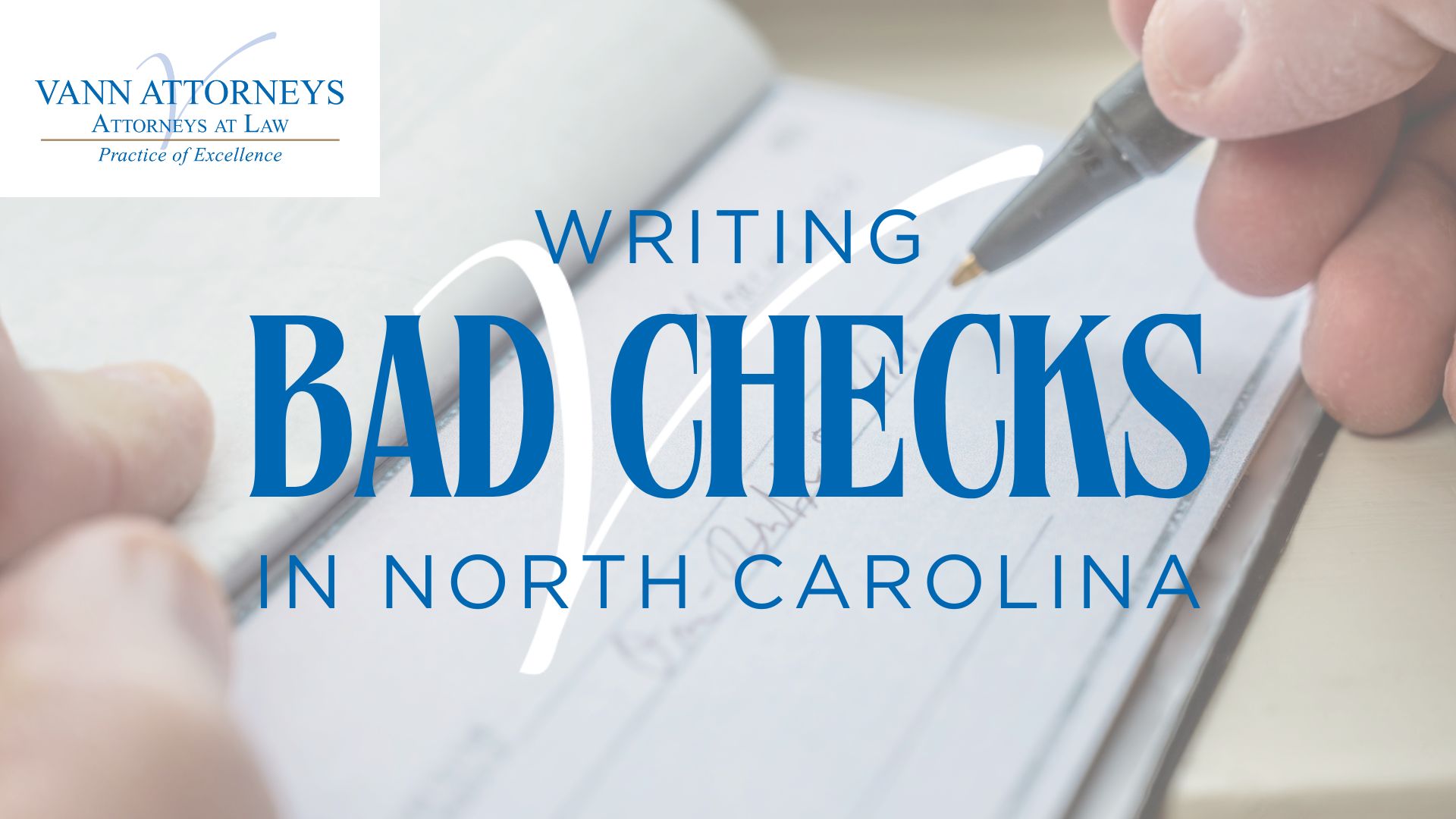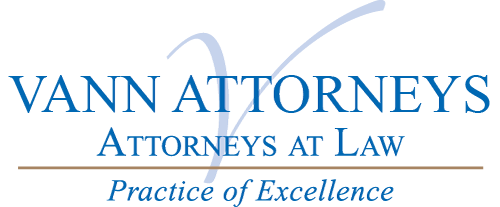Writing Bad Checks in North Carolina: What You Need to Know
By Caitlin S. Truelove
Attorney at Law

In today’s increasingly digital world, writing checks may seem old-fashioned—but it still happens more often than many think. Unfortunately, sometimes checks are written without sufficient funds to cover them. In North Carolina, doing so isn’t just a mistake—it can carry serious legal consequences, both criminal and civil.
Whether you’re a business owner, consumer, or someone who’s received a bad check, it’s important to understand North Carolina’s laws surrounding this issue. Here’s a breakdown of what happens when someone writes a bad check in the Tar Heel State, and what legal options may follow.
What Is a "Bad Check"?
A bad check—sometimes called a worthless check—is a check written when there are insufficient funds in the account to cover it, or when the account is closed.
Civil Liability for Bad Checks
In addition to criminal charges, the person who writes a bad check may be subject to civil penalties under N.C.G.S. § 6-21.3:
- The recipient of the bad check may demand payment via certified mail.
- If the issuer fails to pay the full amount within 30 days, they may be held liable for:
- The original amount of the check;
- Processing fee authorized under N.C.G.S. § 25-3-506;
- Bank service fees authorized under N.C.G.S. § 6-21.3;
- Treble damages (three times the amount of the face value of the check) up to $500.00; and
- And attorneys’ fees pursuant to N.C.G.S. § 6-21.3.
What to Do If You Receive a Bad Check
If you receive a check that bounces, here are the steps you should take:
- Contact the Check Writer: Give them a chance to make good on the payment. Sometimes the issue is a genuine mistake.
- Send a Written Demand: Send a certified letter demanding payment within 30 days, as required by law for civil claims.
- File a Complaint:
- You may also file a civil lawsuit to recover the amount owed and applicable damages.
Takeaway: How to Lessen the Risk of Receiving a Bad Check
One thing that you can do to reduce the risk of receiving a bad check is to require that the check be a certified check, cashier’s check or bank money order. These three methods of payment are certified funds. Certified funds refer to payments that are guaranteed to be available and secure, typically backed by a financial institution. This reduces the risk of the check bouncing, but does not eliminate said risk.
Need Help with a Worthless Check Case?
Whether you’re writing checks or accepting them, it’s crucial to know the legal risks involved. Writing a check you know you can’t cover can quickly escalate into a criminal offense or civil lawsuit. On the flip side, if you receive a bad check, North Carolina law provides clear steps and remedies to recover what you’re owed. If you are trying to collect payment on a bad check, our experienced attorneys at Vann Attorneys, PLLC can guide you through your legal options. Contact our office today.
Wisdom, Experience, Results
Learn More from Vann Attorneys
Vann Attorneys stands ready to meet the diverse needs of clients ranging from individuals to privately held family businesses to corporations with national distribution. The firm represents clients throughout North Carolina and the United States. We periodically publish content that is relavant to our clients and community. Keep reading our 'News & Events' page on the topics most important to you and your business.
Proven
Experience on
Your Side
Leave a message
Raleigh Office
RALEIGH HOURS
| Mon | 8am - 5pm |
|---|---|
| Tues | 8am - 5pm |
| Wed | 8am - 5pm |
| Thurs | 8am - 5pm |
| Fri | 8am - 5pm |
Charlotte Office
CHARLOTTE HOURS
| Mon | 8am - 5pm |
|---|---|
| Tues | 8am - 5pm |
| Wed | 8am - 5pm |
| Thurs | 8am - 5pm |
| Fri | 8am - 5pm |



